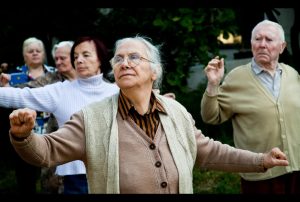Recent news and updates
Guest Blog: The Secret behind the Bond of Senior Citizens and Pets
The research demonstrates the importance of pets in older individuals’ well-being and life expectancy. The aim of developing measures is to ensure that older adults can sustain a high level of health and well-being must include approaches that encourage the importance of pet-senior relationships.
One can be very socially isolated in old age. Nearest and dearest as well as mates shift somewhere or may die of old age, and it becomes increasingly tough to engage in once-loved hobbies. But there is one source of comfort and affection that helps seniors in many ways. These pets need affection and care, but they will surely offer their owners as much or more love in return. These should be handled nicely and taken care of as well. One can find lots of tips online on PetSafe’s official website that guides regarding pet handling and health concerns.
Researches have also shown that it can be physically and psychologically helpful for people of any age to own a pet. For elderly people, only 15 minutes of animal interaction causes a metabolic chain of events in the mind, reducing the stress and anger hormone, cortisol, and increase the release of the happiness hormone serotonin.
Pets are buddies, partners, mental state boosters, and perfect for fitness and social connections. Dogs and cats can add profound meaning to the life of an elderly person.
Let’s discuss few benefits of keeping pets for seniors
This reduces loneliness by having an animal companion with you. Some pets make perfect friends for traveling, as well. The elderly with pets have less anxiety than the elderly without pets. You get a chance to interact with other fellow humans as you take your dogs outside for a walk. And maintaining better relations with people around you is good for mental health so that pets implicitly make you more social. Pets allow you to frequently wake up, eat, work, exercise and sleep. Routines provide the objective and rhythm of your day that is helpful for dealing with depression.
Keeping pets can keep you healthy.
Let’s dive deeper into few health benefits associated with having animal companions:
Heart Benefits
Those with dogs or cats are less likely to suffer from coronary heart disease. Pet owners have much higher chances of surviving the heart attack, lesser resting pulse rate, and blood pressure. Also, it is being shown that pet owners have smaller increases in heart rate and blood pressure in reaction to stress and anxiety, and faster recovery from stress.
Mental Health Benefits
Many older adults are isolated, and dog walks can assist them to interact with others. Plus, when the house itself is quiet, a pet friend becomes a center of affection, which decreases the sense of loneliness.
It turns out that pets are a big inspiration for their owners. In general, dogs are perfect for inspiring owners to exercise, which can be good for depressed people. They can help to relax and ease the mind by petting, lying next to an animal, or playing. Pets are like members of your family and give you a sense of being the one with whom you can share your everyday routine.
Active and sound body
A person who walked with pets increased their usual walking pace and duration and was much more inclined to go out for a walk than others who walked with a human partner. Human partners sometimes discourage one another from walking. In addition, dog-walking was correlated with lower body mass index, no other commitments in daily life, fewer medical visits, more regular moderate exercise.
For elderly people, other advantages of pet companionship also include decreases in blood pressure, cholesterol, and pulse rate. A study revealed that seniors who’ve had pets are 21 percent less likely to visit the doctor’s office and exhibit reduced symptoms of aging.
Seniors’ Pet Therapy
Those working to care for the elderly claim that walking and pampering the pet, helps seniors come out of their isolation, offers mild exercise and cardio, as well as provides a way to feel valued and engage with the world. Pet therapy can also assist with the Sundowners Syndrome of Alzheimer’s. For older individuals with Alzheimer’s disease, nighttime can be very disturbing and discomforting. This is when certain people with Alzheimer’s decision to run away or leave their families. Having those with Alzheimer’s associated with and distracted with a pet can prevent this problem.







